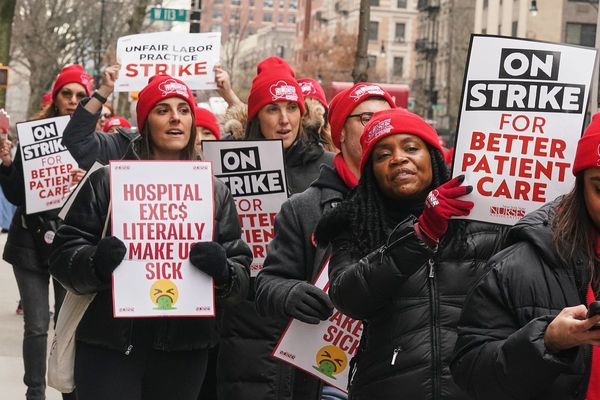Hospitals in England have had to cancel 88,000 appointments because of strikes by nurses and ambulance staff over the last seven weeks, figures have revealed.
NHS bosses warned on Tuesday that the already “shocking scale of disruption” to patient care could “skyrocket” in coming weeks as unions intensify their campaign and walkouts over pay become commonplace.
The figures were released today as the British Medical Association (BMA) warned that consultant doctors – senior medics – may soon join the array of frontline staff taking industrial action.
In all 10,707 people have had their inpatient appointment – usually for an operation – postponed.
A total of 56,152 outpatient appointments, in many of which a patient was due to see a consultant, have also been rearranged because of the stoppages that began on 15 December. So, too have 1,752 sessions with mental health specialists and 19,432 appointments with community services – a total of 88,043 cancellations.
Hospitals body NHS Providers, which released the figures, voiced its alarm that the number of postponed appointments will soon soar. “Official figures show more than 88,000 appointments have already been postponed due to the industrial action this winter,” a statement said. “There are fears this could soon ‘skyrocket’ unless the government agrees to negotiate with unions on pay.”
Nurses and ambulance staff are due to stage a joint walkout next Monday, 6 February, with nurses due to strike again the next day, followed by physiotherapists on 9 February and ambulance workers again the day after.
“The shocking scale of disruption is a direct result of pay disputes between the government and unions,” said Saffron Cordery, the interim chief executive of NHS Providers.
“Trust leaders are worried this could skyrocket with more strikes, which is an outcome no one can afford as trust leaders try tirelessly to bring down the elective care backlog. Worryingly, this could be just the tip of the iceberg if strike action continues.”
She added: “For many trusts, Monday will be the toughest challenge they’ve ever had as nurses and ambulance staff strike together for the first time, and in more places than before. Leaders are doing everything they can to prepare by putting plans in place to minimise effects on patients and making sure they can provide high-quality, timely care where possible. But without a resolution, disruption is inevitable.”
Hospital bosses sympathise with staff who have seen their real-terms income eroded by years of below-inflation pay rises and blame ministers for the dispute, she indicated.
“Strike escalation will cause serious and profound damage to the NHS in the long term. We need to do everything we can to ensure industrial action doesn’t become the new normal.
“The government has the power to end this disruption right now by talking to the unions about working conditions and, crucially, pay for this financial year. Their reluctance to do so is getting in the way of efforts to tackle elective recovery for patients.”
The BMA today announced that it will conduct a consultative ballot with about 35,000 consultants in England between 10 and 27 February to assess their willingness to strike over pay.
“Year after year of pay erosion has meant the average consultant in England has experienced a real terms take home pay cut of nearly 35% since 2008/09,” the BMA said. It is also concerned about the NHS in England having 9,000 vacancies for doctors and the government’s alleged failure to overhaul pension tax rules to encourage doctors to keep working in the NHS for longer.
Dr Vishal Sharma, the chair of the union’s consultants committee, said: “Senior doctors are cutting their hours or leaving the NHS in their droves, driven out of jobs they love by unfair pension tax rules and brutal cuts to their pay.”
Meanwhile, dieticians may also start striking. The British Dietetic Association (BDA) has sent ballot papers to members working in 66 health trusts in England and Wales and advised them to back strikes.
“An award of £1,400, which equates to around 4% for a mid-career dietician, is just not enough when inflation is running at over 10%,” the BDA’s director, Annette Mansell-Green, said.







